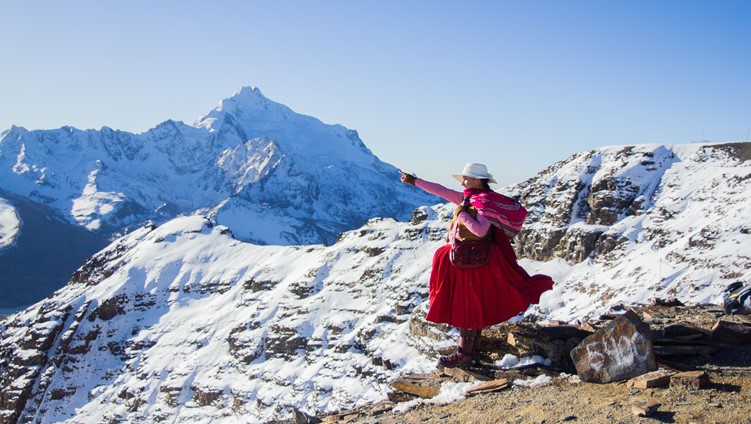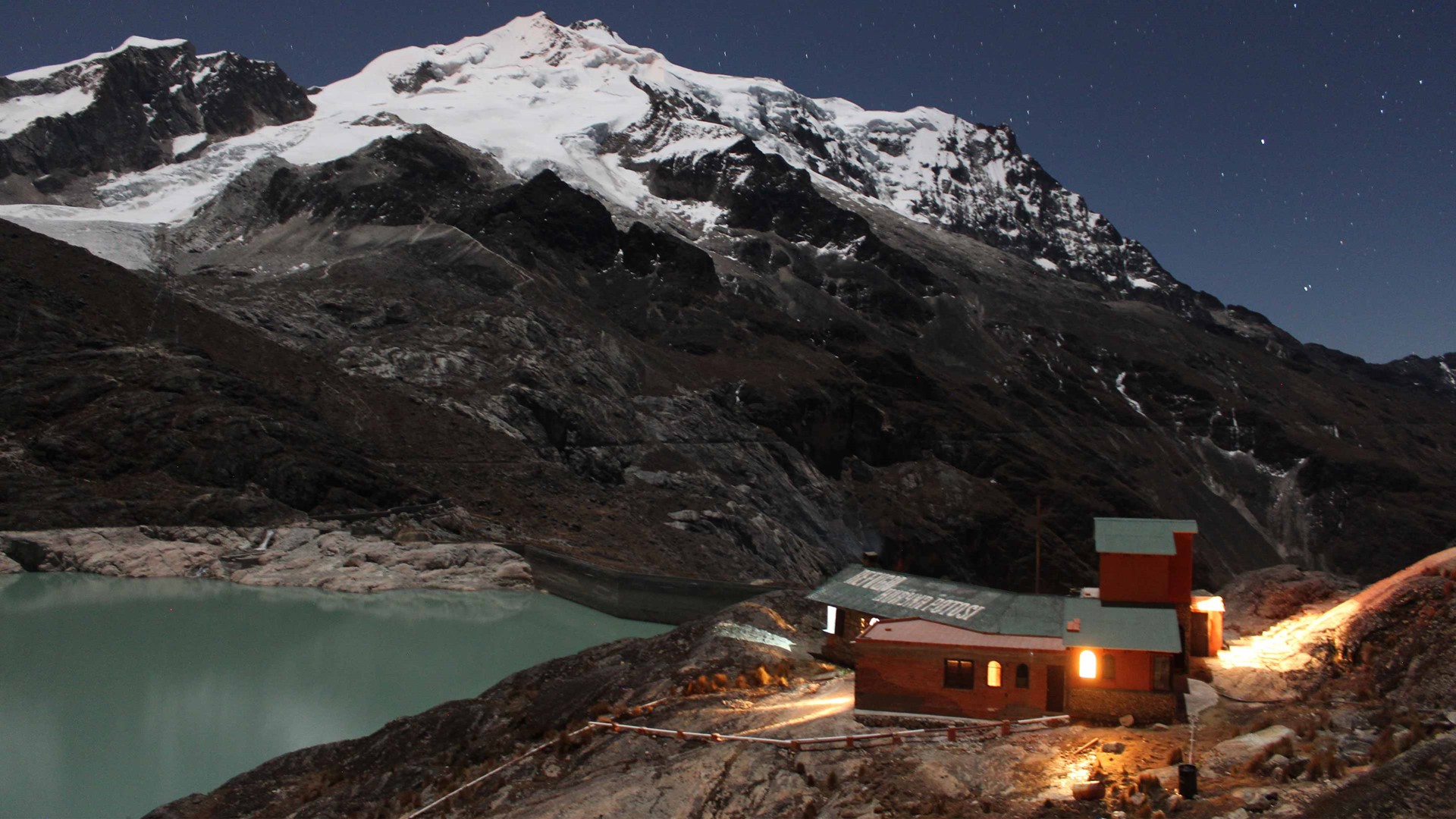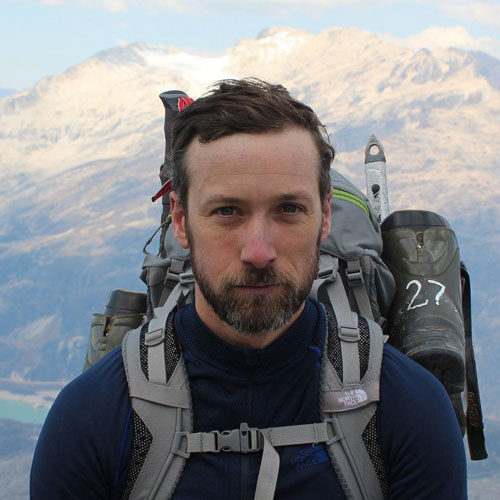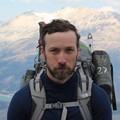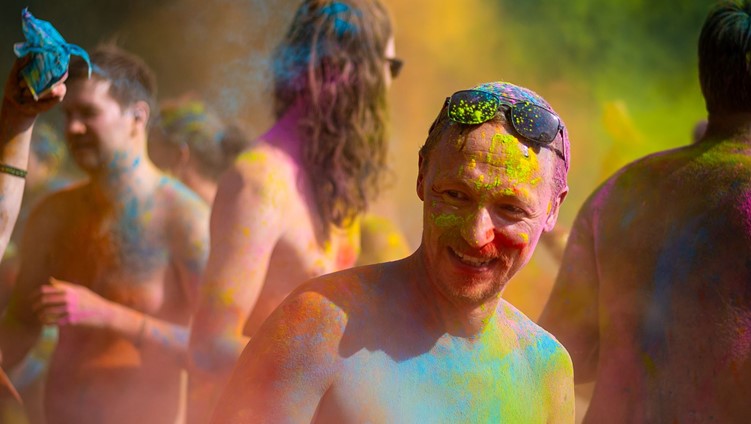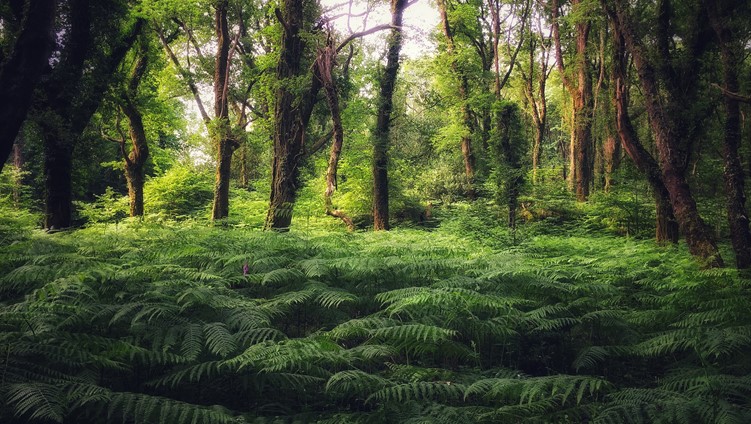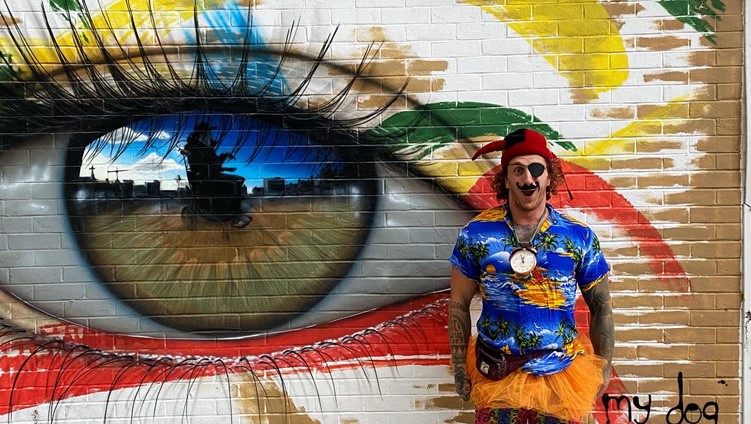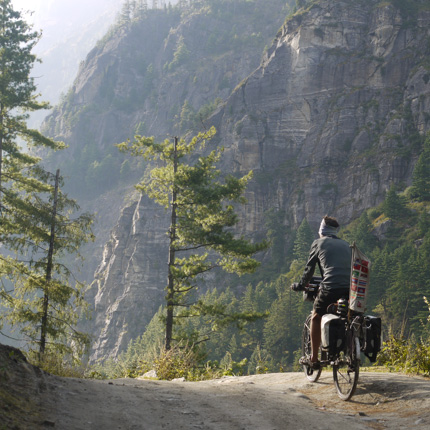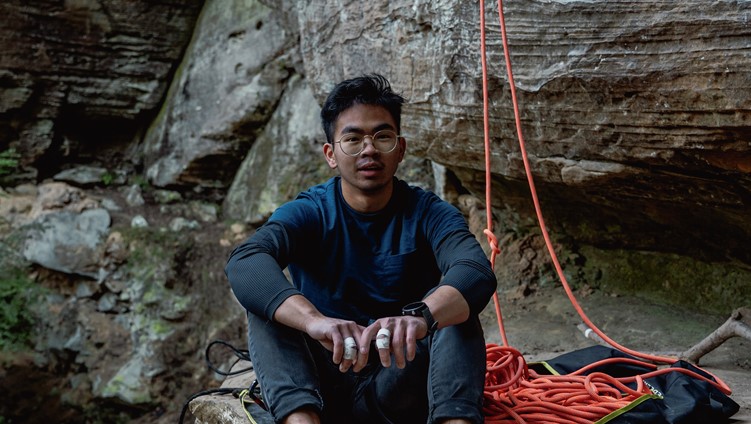
Fearghal O’Nuallain’s message is simple. ‘Go on adventures but don’t waste time telling everyone about them, just go and experience the world.’ Life can teach you more than books. Storytelling comes after, if at all.
That’s probably why, when his handmade reed boat overturned in a freak squall on day one on his kayak down the 320km long Desaguadero River in the Andes, Fearghal doesn’t dwell too much, ‘the adventure went pretty smoothly, we were lucky actually’.
Atiplano, Andes Mountains, Bolivia
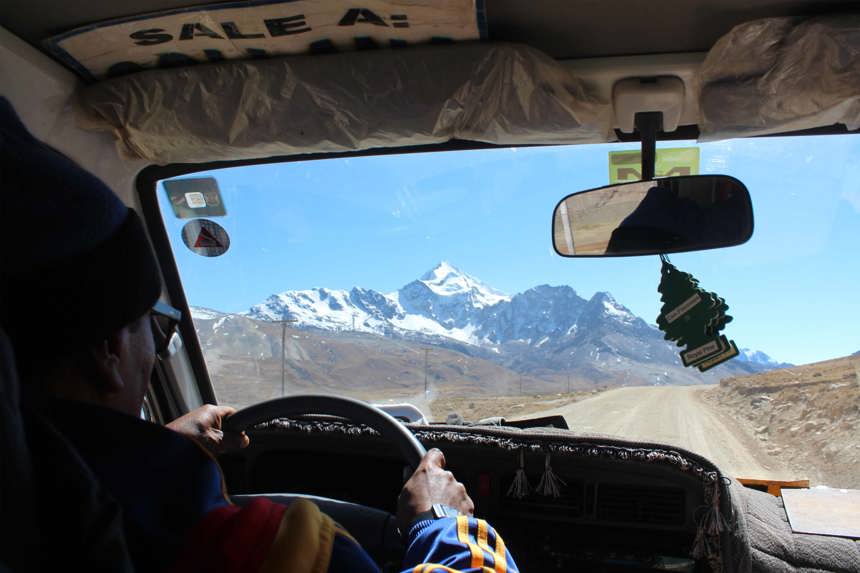
A full-time geography teacher in an inner-city school in south London, it was whilst teaching twenty-five fifteen-year-olds students about water scarcity in the Bolivian Altiplano that Fearghal realised the topic needed better teaching material. That material didn’t yet exist. He decided to collect and produce it himself.
Accompanied by photographer Temujin Doran, Fearghal spent five weeks following the water course for over 1,000km, from the glacier Huayna Potosi at 6088m down through Lake Titicaca and Lake Poopó to the famous Salar de Uyuni salt flats.
The landscape was incredible, ‘we passed through what was once the highest ski resort in the world [Chacaltaya] but now hasn’t seen snow for nearly 15 years’, a brutal reminder that climate change is impacting humanity here and now. ‘It was really eerie’, Fearghal recalls ‘ski lifts just left resting, old ski lodges completely empty that were once full of people drinking, having a good time’.
Water has always been scarce in the region but mounting climate change coupled with increasing demands for water due to urbanisation and population growth is creating both a humanitarian and environmental challenge. Once Bolivia’s second largest lake covering over 1,000km, Lake Poopó hit headlines this year having completely dried up due to climate change and increased mining activities. Fearghal was forced to walk the remainder of his journey to the salt flats.
This was the geography lesson, the straight facts he looked to bring alive. ‘The point was to make something that was a bit dry [water scarcity in Bolivia’s Altiplano] more exciting and teachable, as well as to have an adventure’. If there was a joke in there, Fearghal doesn’t laugh.
'A life should be measured by what was learned, experienced and shared.'
The film, High Water, now in post-production, will contain astonishing footage documenting Fearghal’s first-hand experiences of water scarcity, climate change and its impact on humanity in the Bolivian Altiplano. It will be distributed alongside teaching materials to schools across the country. Oh, and the whole trip was self-funded.
If Fearghal has been somewhat reserved during the account of his trip, skimming over details that could seem self-aggrandising, he lights up when mentioning the educational capacity of adventure. ‘So many things we take for granted, to these children are abstract concepts’ he says. To bring adventure into the classroom is to make abstract concepts tangible and real. The benefits are both environmental and personal. ‘If you have no experience of something you fear it, as adults our duty is to allay the fears of the young, to help them understand nature so they care for it. Too much today we’re looking at education in terms of measurable outcomes and removing the opportunity for young people to play and discover and explore the world themselves. By discovering the world we build a sense of self and our place within it’.
'To bring adventure into the classroom is to make abstract concepts tangible and real. The benefits are both environmental and personal.'
Adventuring is so often associated with limitlessness, infiniteness and detachment. Yet our relationship with our surroundings, the way we process and understand experiences is tied to specific localities, histories, cultures and heritages. These traits form what we know; they form the lens through which we see the world, tinting our perceptions with subjectivity. Fearghal recognises this, ‘It’s impossible to completely escape the past and your cultural heritage but just attempting to do so proved to be a valuable experience’. Adventure is not about ridding ourselves of hang-ups and predispositions, these are important ways of making sense of ourselves and those around us. The value of adventure is in its capacity to highlight our limitations and ‘reach a certain truth about the world’.
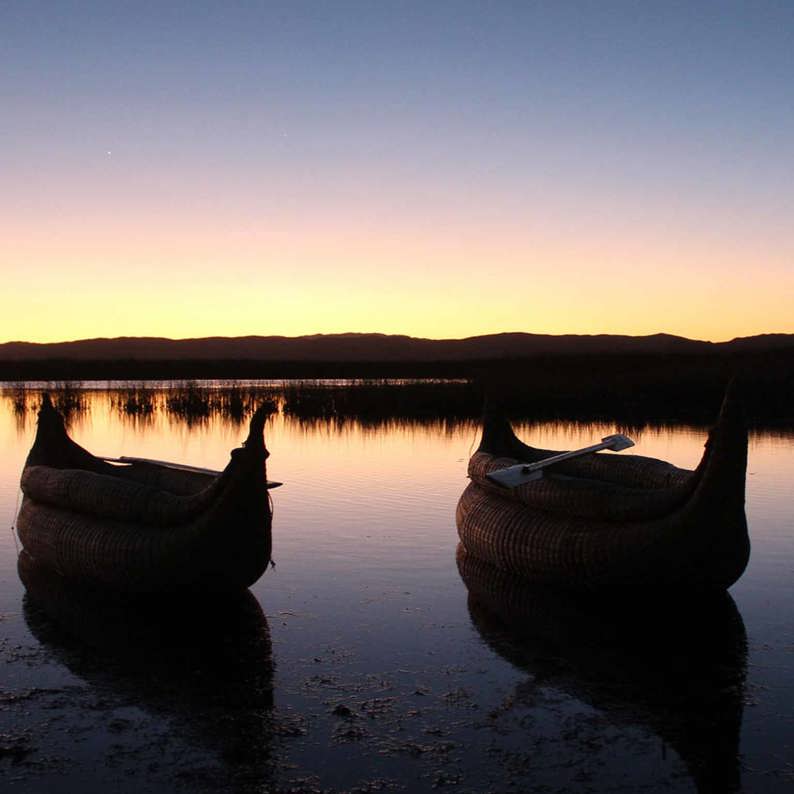
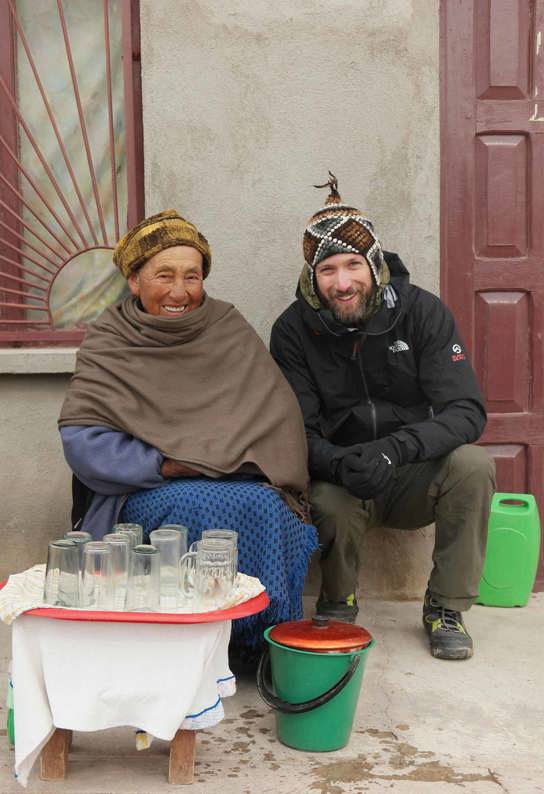
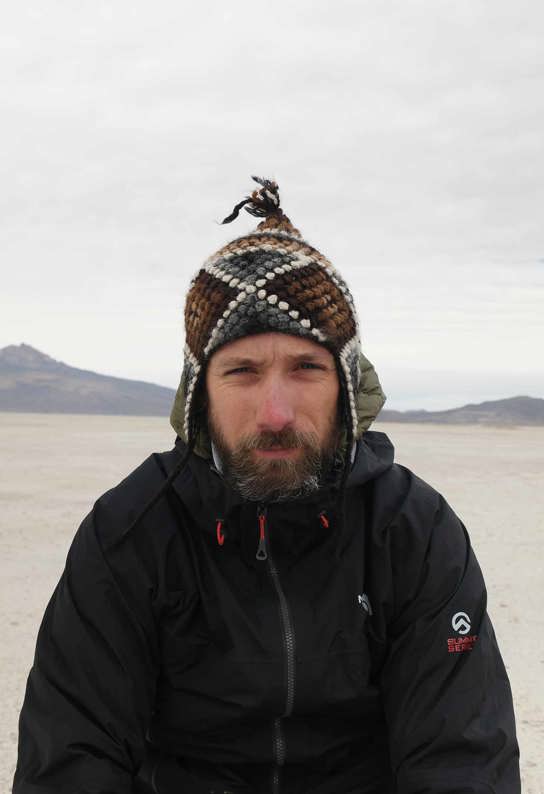
Fearghal’s message is about the experience. Just get out there and reap the rewards that adventure can bring. Then, when an adventure is used to accelerate positive social or environmental impacts, it really comes into its own. ‘Life [is] not about ticking things off a list of extrinsic achievements… a life should be measured by what was learned, experienced and shared, by who was helped and what was passed on to others’. Adventure can inspire, motivate and educate and High Water embodies this completely.
Fearghal O’Nuallain
Fearghal was born in Dublin. He has completed a series of adventures across the world although refuses to call himself an adventurer. These trips are documented on his website.
To view the trailer of High Water and learn more about the expedition go here.
Keep exploring

